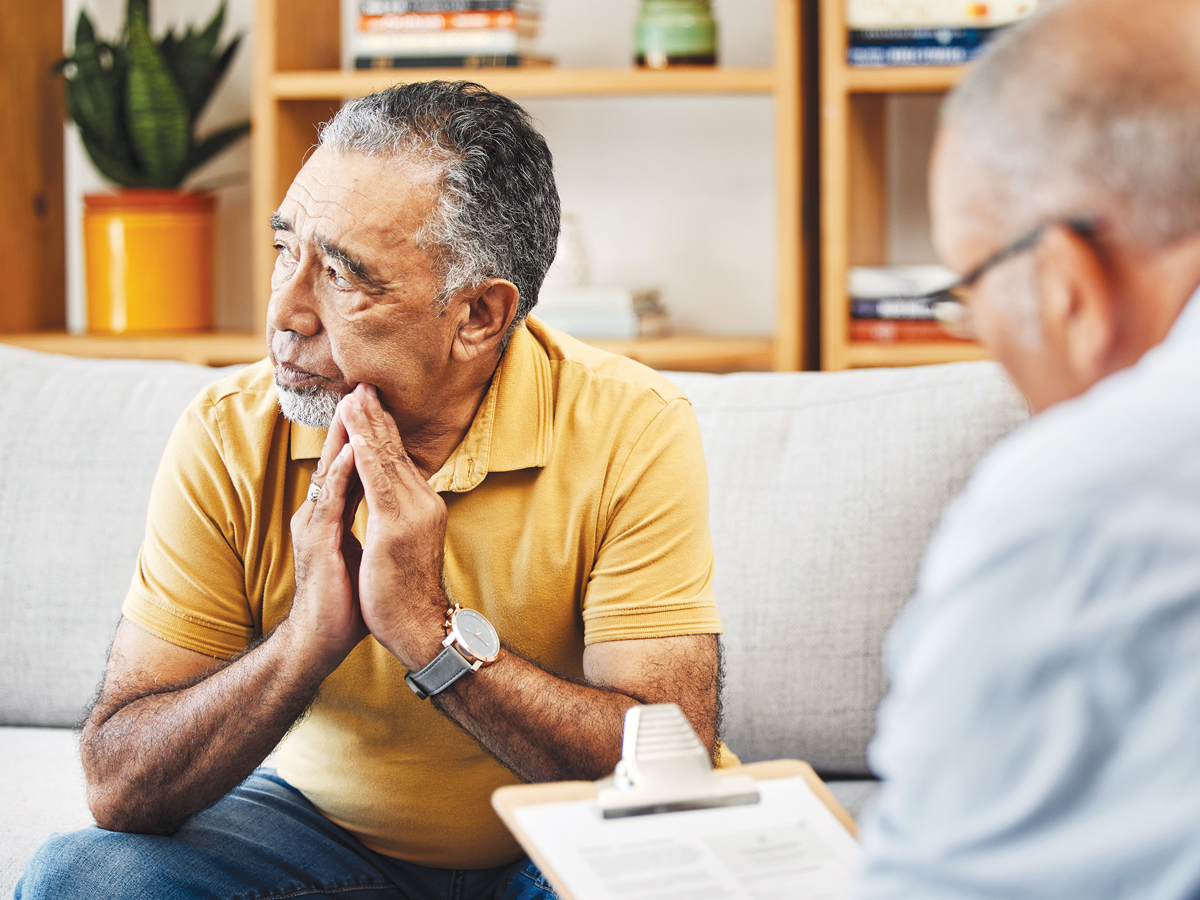Grief is the sense of loss that you feel when you lose something that is important or valuable to you. You may have days when you feel like you will never get over your loss. These feelings of sadness may never go away completely, but most people find that they hurt less as time goes on.
Most people connect grief with the death of a loved one, but you can grieve for other reasons. People who live with cancer may grieve for many things, such as the loss of their sense of health and security, a lost body part, the inability to have a child, changes to future plans or money problems due to time away from work.
Learning to cope
Everyone grieves differently—there is no “right” way to do it. We all go through the process of grieving in our own way and in our own time, learning to live with our loss as we go along. No one can tell you how you should grieve, when you should feel certain emotions or in what order.
You may feel like withdrawing from people for a while. Your grief is a very personal experience, and your feelings do not have to follow any path but your own. The way you grieve will depend on:
• whether the loss was expected or unexpected
• how much you valued what you have lost
• your personality
• how you’ve coped with loss before
• the support systems in your life (family, friends and spiritual, religious and social communities)
Physical symptoms
You many have some physical symptoms or reactions while you are grieving. You may cry, have trouble sleeping, change your eating habits by eating more or less and feel anxious, tired or weak. Many report problems concentrating or remembering things as well. During the grieving process after a death, you may have some or all of these emotions:
Shock. When you first find out that someone has died, shock is often the first emotion you might feel. Even if you had been expecting it, the actual death may still come as a shock to you, especially if it was sudden or happened sooner than expected.
Sadness, loneliness and isolation. The sadness of grief is a deep sense of loss. Some people have a sense of emptiness or being left alone by the person who died. You may feel like no one understands what it is that you have lost.
Anger is not unusual. You may be angry that the person left you, that they should have tried more treatments or somehow stopped themselves from dying. You may also be angry at yourself because you didn’t visit the person often while they were ill or because you weren’t there when your loved one died. You may also be angry at fate or your god for the person’s death.
Relief. You may feel a sense of relief after someone’s death, especially if the person had been very ill or in pain. If you were a caregiver, you may also feel thankful that the stress of caregiving is over.
Guilt. You might feel guilty that you didn’t do enough to help someone while they were alive. You may feel guilty about something that you said or didn’t say. You may even feel guilty because you are relieved that your loved one has died.
Coping with grief
Grieving after someone dies can be a long and painful process. There is no set time period for grieving. Given time and support, you will begin to heal, accept the loss and adjust. Most people find that their emotions and physical symptoms of grief start to lessen between six months and two years after the death of a loved one. People who fully experience grief usually find that they can be happy again and may even find that they feel stronger and more capable than they did before.
To cope with grief, you can:
• Let yourself cry as often as you need to. It’s part of the healing process.
• Allow yourself to feel sadness, pain, anger and any other emotions.
• Forgive yourself for the things that you may have said or done or didn’t say or do.
• Join a grief support group or talk to a counsellor who specializes in grief.
• Prepare yourself for the emotions that may come up on birthdays, anniversaries and holidays.
Take care of yourself while you are grieving by eating well and staying active. Limit the amount of alcohol or other drugs that you use—these can cause other emotional problems and slow down your recovery from grief. Remember that while it’s important to let yourself feel all the emotions of grief, you don’t need to be focused on it all the time. Take a break from grief to do something that you enjoy—go to a movie or concert, take a hot bath, read or listen to music.
You may dream about that person or have visions or hear the voice of the person while you grieve. This is a normal reaction as you get used to someone being gone. During the grieving process, try not to rush into major life changes such as changing jobs, selling a house or moving to a new city. If you can, take some time to get used to your new situation. Look after yourself before taking on too much.
When grief doesn’t go away
Some people have a very hard time adjusting to their loss and become depressed. “Complicated grief” is grief that does not improve or gets worse as time passes.
If you’re having a hard time moving forward after someone has died or you find your grief is getting worse, it’s important to get help. Speak to your family doctor about treatment. You may also find it helpful to speak to a mental health professional.
This article was excerpted from the Canadian Cancer Society. Visit cancer.ca.












